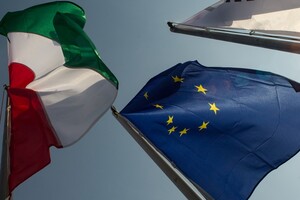Orbán's focus on Putin is causing problems in his country.

Issues of the rule of law and democracy in Hungary remain unresolved . This was the conclusion reached by the Parliamentary Assembly of the Council of Europe (PACE), therefore they voted to introduce full monitoring procedures in the country.
In the resolution based on the report of the representatives of Greece George Papandreou< /strong> and Estonia by Erik-Niles Kross, it is about a whole series of violations that give reason for PACE to be deeply concerned about the situation in Hungary.
In particular, the resolution notes that due to recently adopted laws in Hungary, the country's electoral system does not provide a level playing field that promotes fair elections, and also “significantly limits political pluralism, which is a feature of a democratic system.” Considerable concern is also caused by numerous violations of fundamental rights, oppression of the independence of the judiciary and pressure on the media.
Among other things, the Assembly also expressed concern about the use of a special legal order in the country starting in 2020, which expands the powers of the prime minister. and allows entering a “state of danger”. According to parliamentarians, such orders should be issued only in case of strict necessity, be proportionate and limited in time.
It was planned that the PACE would only make comments to Hungary, but later the wording was changed in favor of introducing the main pre-sanctions mechanism in Ukraine — democratic monitoring.
95 deputies voted for it, with 25 votes “against”. » and one who abstained.
Read also: Orbán wants to achieve the lifting of anti-Russian sanctions by the end of the year – media
Last month, a European Parliament report recognized that Hungary is no longer can be considered a democracy, and European values in the country are under systemic threat.
Due to these problems and significant corruption risks, the European Commission recommended to suspend payments to Hungary for three operational programs within the framework of the key EU fund in the amount of 7.5 billion euros. the country can receive money “from other sources”.




